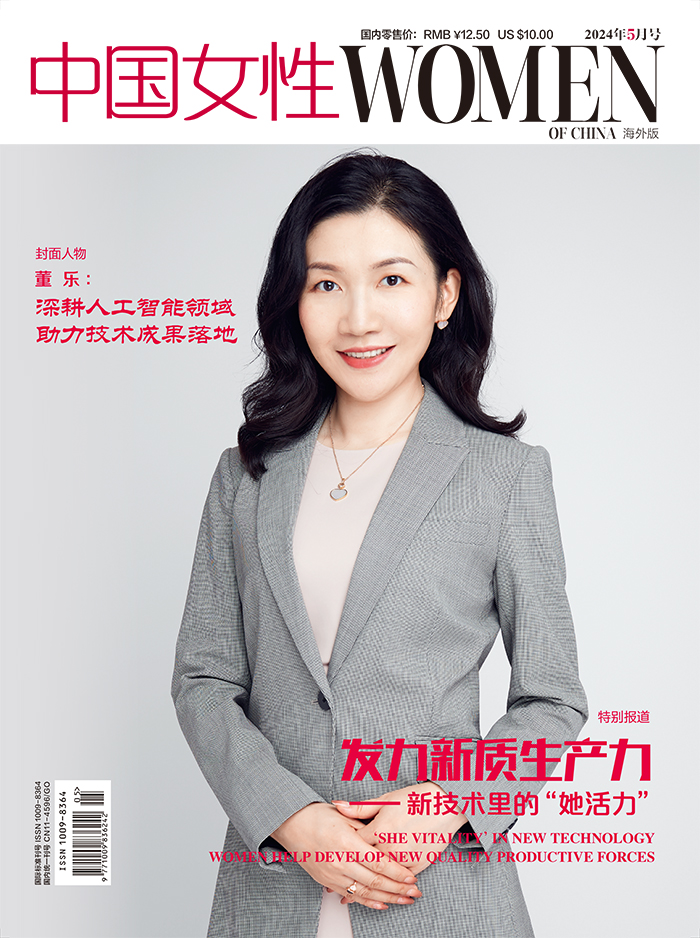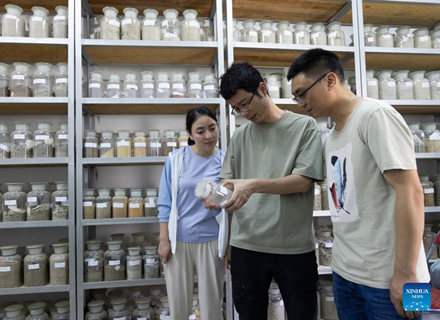Bringing History of Women Red Army Soldiers to Life
Zunyi, in Southwest China's Guizhou Province, is a well-known tourist destination, given its key role in China's revolutionary history. During the Long March of the Chinese Workers' and Peasants' Red Army, the Zunyi Conference, a pivotal meeting of the CPC, was held in the city in 1935. The meeting established the leadership of Mao Zedong (1893-1976) in both the Red Army and the CPC Central Committee.
Women Red Army Soldiers Memorial Hall, which covers more than 200 square meters, is located near Chishui River, in Tucheng, a town in Xishui County, in Zunyi. The Red Army's crossing of the Chishui River four times was one of the army's brilliant military moves during the Long March.

Women Red Army Soldiers Memorial Hall is the only memorial hall in China dedicated to the Red Army's women soldiers. The Western-style building, completed during the early 20th century, was used as the headquarters of the Third Army Group of the Red Army in January 1935.
Mu Yanbi is curator of the memorial hall. During the past 15 years, Mu has dedicated herself to telling stories of the women soldiers, and to inheriting and promoting their spirit. Mu is an excellent docent, and she is head of the women's volunteer publicity team of both the All-China Women's Federation and the women's federation of Guizhou Province.
She has worked hard to bring the history of women Red Army soldiers to life, through high-quality publicity activities.
Dedicated to Work
The Red Army was a people's army, led by the CPC, during China's agrarian revolutionary war period. Adversity breeds success. The history of the Red Army reflects success through hardship. Even though it was well known the women soldiers of the Red Army overcame numerous hardships, there were relatively few complete materials that recorded the stories of the women soldiers.

In September 2009, Women Red Army Soldiers Memorial Hall opened to the public. The memorial hall houses photos of 600-plus women soldiers, and 216 items of women soldiers. The memorial hall also displays the names of 4,113 women soldiers, and the heroic deeds of 731 women soldiers.
Mu, who participated in the early stages of building the memorial hall, has witnessed the arduous process of collecting materials for display. She regards the memorial hall as her home, and she is familiar with each item on exhibit — and each women soldier's story.
"Every time I tell the women soldiers' stories, I better understand the hardships and difficulties of the women soldiers. In the revolutionary era, they made the brave choice and devoted themselves to the revolutionary cause. What choice should I make in the new era? I think it is my duty and obligation to tell their stories, so their spirit and deeds can be more vividly displayed … History belongs to our ancestors, and the future belongs to us. Every era has its heroes. Through telling the women soldiers' stories, I hope the spirit of the Red Army will inspire more people. This is the thing I can do for the revolutionary martyrs, and I must do it well," Mu says.
To interpret the spirit of the Red Army more vividly, Mu has studied many historical materials about the history of the Red Army, especially of the women soldiers. She has also learned from experts and local people the history of the women soldiers.
Mu stresses the importance of innovation while telling the stories of women soldiers, and while advocating the spirit of the Red Army. Various performances and educational activities are held in the memorial hall, including poetry recitations and stage plays related to women soldiers' stories.

Improving Services
Mu has set the eighth day and the 28th day of each month as the two special days to share women soldiers' stories. On those days, the memorial hall organizes both on-site and livestreaming activities. The online activities have helped expand the hall's popularity.
Mu has invited "red-culture" experts, descendants of women soldiers and officials and public figures to attend seminars on the spirit of women Red Army soldiers.
In November 2018, China's Ministry of Culture and Tourism launched a nationwide campaign to cultivate and present awards to five-virtue "red tourism" docents. Since then, Mu has strengthened the training provided to docents in the memorial hall, to improve overall services at the venue.

In 2019, two of the hall's docents were given the title of national five-virtue docent, and the memorial hall also became a national demonstration unit for cultivating five-virtue docents.
Given the concerted efforts of Mu and her colleagues, the memorial hall has become a revolutionary education base for women, from all sectors of society, and students of universities and primary and middle schools. The memorial hall has cooperated with many primary and middle schools to organize various "red-culture" activities, and it has trained more than 100 students to be docents.
Mu has also participated in the program to cultivate women volunteer docents in Guizhou Province. The memorial hall has cooperated with Guizhou University, Zunyi Vocational College and other universities and colleges to research and develop "red" political education courses. Their courses have been well-received.

"I have been working in the memorial hall for more than a decade … I have a passion for ‘red culture,' and, more importantly, I always respect and have a grateful heart toward women Red Army soldiers. It is a great honor for me to be a volunteer docent. For me, that means affirmation, hope and trust." Mu says.
"Although the brave and fearless women Red Army soldiers left us forever, their revolutionary spirit has always inspired us to move forward, courageously. With the support of ACWF, and relevant departments, we will continue to do a good job in promoting women soldiers' stories and inheriting their spirit. We will establish more courses aimed at women, from all walks of life, and unite women in pooling their strength and forging ahead on the new journey," Mu adds.
Photos Supplied by Guangzhou Women's Federation, Interviewees and VCG
(Women of China English Monthly August 2022 issue)
Please understand that womenofchina.cn,a non-profit, information-communication website, cannot reach every writer before using articles and images. For copyright issues, please contact us by emailing: website@womenofchina.cn. The articles published and opinions expressed on this website represent the opinions of writers and are not necessarily shared by womenofchina.cn.?








 WeChat
WeChat Weibo
Weibo 京公綱安備 11010102004314號
京公綱安備 11010102004314號